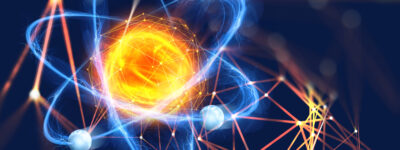Attractors and thermalization in nuclear collisions and cold quantum gases

Aula Renzo Leonardi - Villa Tambosi
Str. delle Tabarelle, 286, 38123 Villazzano TN
Villazzano
***WARNING: for hotel bookings do not give your data to any external services upon email request; there are known cases of fraud***
The past 15 years have seen remarkable progress in understanding the thermalization of quantum systems in extreme conditions. On the high energy and nuclear physics side, the motivation came primarily from ultra-relativistic nuclear collisions at RHIC and LHC which probe collective states of strong interactions in an intrinsically nonequilibrium way. For ultracold quantum gases, progress in the experimental control over closed quantum systems allowed for precision experiments probing closely related nonequilibrium quantum many-body phenomena in a space and time resolved way.
The central theme of this proposal is the role of novel dynamical attractor phenomena that, on one hand, underlie thermalization in theoretical models of nuclear collisions and, on the other hand, were or may be realized in experiments with cold quantum gases. While (local) thermal equilibrium has long been viewed as such an attractor, research of the past 15 years revealed two others that are intrinsically nonequilibrium ones: nonthermal and hydrodynamic attractors.
Nonthermal attractors, also known as nonthermal fixed points, are defined by self-similar evolution in time, which is characterized among others by a set of scaling exponents. In the context of thermalization in nuclear collisions, they emerged in simulations of early time dynamics of QCD at very weak coupling in 2013 (Berges with key prospective participants Boguslavski, Schlichting and Venugopalan). In 2018 they were experimentally confirmed in two cold atom experiments (Berges in two papers with labs of key prospective participants Oberthaler and Schmiedmayer).
Hydrodynamic attractors emerged from strongly-coupled approaches in 2015 (Heller and Spaliński) as a theoretical attempt to explain fast applicability of relativistic hydrodynamics in nuclear collisions by the emergence of universality in the dynamics extending the notion of fluid constitutive relations to far from equilibrium. Later, they were shown to extend to weak-coupling description. In 2024 a theoretical proposal by Enss et al. (key prospective participant) emerged to observe them in cold atom experiments.
To date hydrodynamic attractors and nonthermal attractors have been pursued largely disjointedly. However, in the past two years this started to change. Both attractors have been framed in the unifying scheme of adiabatic time evolution by Brewer, Yin (key prospective participant) et al. in 2022. Furthermore, the interplay between the two attractors in QCD kinetic theory as different stages of the evolution has been explored (Lappi 2023).
We expect significant benefits of bringing together theorists working on various notions of attractor behaviour along with researchers pursuing cold quantum gas experiments.
Organizers
-
Michal P. Heller (Ghent University)
-
Jürgen Berges (Heidelberg University)
-
Jasmine Brewer (University of Oxford)
-
Tuomas Lappi (University of Jyväskylä)
-
Michal Spalinski (National Centre For Nuclear Research)
Contacts
Registration
Registration available from 21/07/2025 until 29/08/2025.